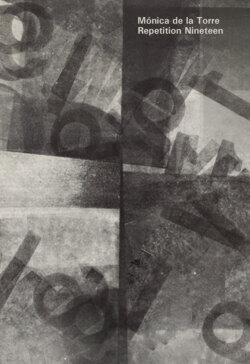Читать книгу Repetition Nineteen - Mónica de la Torre - Страница 12
На сайте Литреса книга снята с продажи.
ОглавлениеIntimacy in Discourse:A Comedy In Three Movements
After paintings by Thomas Nozkowski
One
Stick Man steps back
containing multitudes
of hues. “Ta-da!” he mouths,
since he’s mostly
narrow bands
of diffused colors,
a rainbow, faded,
except for the saturated,
tender-looking red
square for a heart
and the sore ball
of his left foot
supporting the tilt.
Not to mention the display
of acid green
on the crown of his head
and wrist, signaling
the mind-body connection.
The histrionics
in the perfect tension
between dexter and sinister.
Welcome to showbiz.
Two
This binary roadblock here
demands that you back off
to keep on contemplating it.
It fancies itself a zebra
standing on diamond-patterned stilts
for camouflage’s sake
and fastens itself to an equally
ornamented attachment
as if to hide from its handlers.
Forget it, it’s not interested
in establishing any rapport with you.
Blame it on instinct; it knows
how coveted equids are in the North
American private sector.
Three
Here’s your morality tale,
an optical conundrum/psychoactive puzzle:
the dominant lines lock,
while the areas they delimit contain
other lines within, of the faint,
disjointed variety.
Like interconnected
people and the basic story lines they each cling to
to remind themselves of themselves.
Yes, this is redundant.
In this picture, both
types of lines compete
for your attention, so that the eyes’
only resting spot
is a central area where color
has enough room to settle.
That old positing of linear
thought patterns versus the dispersal
of feelings and their counter-
tendency to ground.
In the source language disparate,
pronounced dis-pah-rah-teh, is nonsense.
Place an accent on the wrong
syllable and it becomes “shoot yourself.”
Let’s not overthink this.
